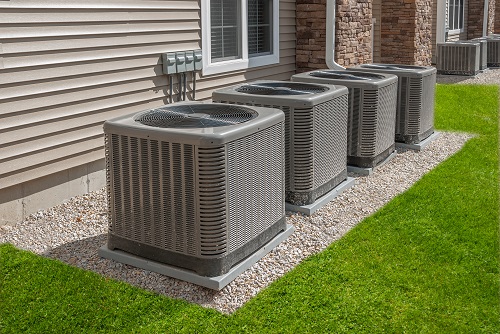
Amid the hustle and bustle of daily life and home upkeep, it’s easy to forget about your heat pump. However, maintaining your heat pump is essential for its longevity and performance.
According to Energy.gov, proper heat pump maintenance can boost energy efficiency by up to 25%, saving you time and money on repairs.
This comprehensive checklist will guide you on DIY maintenance and what to expect from a professional technician when servicing your heat pump in North Myrtle Beach.
DIY Maintenance
To protect your heat pump and optimize energy efficiency between professional heating and cooling maintenance visits, follow these steps:
- Clean or Replace the Filter: If you use the system more than once a month, clean or replace the filter.
- Clear Foliage and Debris: Remove any foliage or debris around the outdoor unit, ensuring that all shrubs are trimmed back to 18 inches.
- Winter Check: During the winter, check for ice or snow buildup around the unit, as heat pumps require proper airflow for optimal functioning.
- Inspect Outdoor Coils: Regularly inspect the outdoor coils; if they’re dirty, follow the manufacturer’s cleaning instructions.
- Clean Registers: Clean the supply and return registers, especially if they are dirty.
- Keep Vents Open: To enhance system efficiency, keep all vents open.
 Preventative Heat Pump Service
Preventative Heat Pump Service
An HVAC contractor possesses expertise in heat pump operation and can address various issues and provide extensive services. Here’s what you can expect from a professional technician during a heat pump service:
- Lubricate Mechanical Parts: Lubricate mechanical components to reduce friction and resistance, thus minimizing wear and improving efficiency.
- Clear Condensate Drain: Remove obstructions from the condensate drain and inspect it for cracks or leaks.
- Check Control: Listen for unusual noises or vibrations to verify heat pump control.
- Air Filter Inspection: Inspect the air filter for dirt; replace it if necessary.
- Inspect Fan and Condenser Coil: Clean the fan and condenser coil, checking for stability, amp draw, and vibrations.
- Check Alignment: Inspect belts, pulleys, and other components for alignment issues.
- Examine Blower Wheels/Motors: Ensure there are no restrictions in airflow and that the motor draws the proper amp.
- Refrigerant Levels: Measure refrigerant levels as needed.
- Metering Device Inspection: Examine the refrigeration metering device to ensure proper operation, as malfunctions can reduce heating and cooling efficiency.
- Inspect Electrical Wiring: Check electrical wiring and connections for damage; replace damaged wires and fix loose connections.
- Clean Drain Line: Flush the drain line to maintain cleanliness and prevent clogs.
- Duct Inspection: Inspect ducts for dirt, obstructions, or damage that could hinder airflow or cause leaks.
- Defrost Timer Check: Verify the functionality of the defrost timer by checking the defrost assembly.
- Crankcase Heater Test: Test the crankcase heater to ensure it functions correctly and prevents performance issues.
- Monitor Coil Temperatures: Monitor coil temperatures for variations that could signal underlying issues.
- Safety Feature Check: Verify that safety panels and other safety features are in working order.
- Thermostat Testing: Check the thermostat’s responsiveness to current conditions.
- Time Delay and Unit Disconnect Switches: Test the time delay and unit disconnect switches to prevent electrical hazards.
- Elevation Inspection: Ensure that the unit’s elevation is suitable to avoid freezing and drainage problems.
Heat pump maintenance can be challenging if you’re unsure where to begin.
For professional heating and cooling services, it’s best to contact North Myrtle Beach Heating & Air. Reach out to us today!
Like our Facebook page for more information about heating and cooling services.
North Myrtle Beach Heating & Air
1001 2nd Ave N
North Myrtle Beach, SC 29582
843-399-3237
https://www.northmyrtlebeachheatingandair.com/
Serving: North Myrtle Beach, Barefoot Landing, Little River, Longs, Cherry Grove

No comments:
Post a Comment